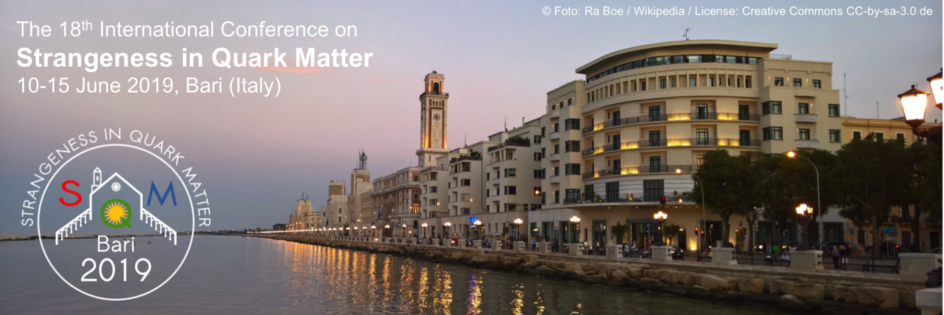Speaker
Description
We present the novel microscopic n-body dynamical transport approach PHQMD
(Parton-Hadron-Quantum-Molecular-Dynamics) for the description of particle production and cluster formation in heavy-ion reactions at relativistic energies. The PHQMD extends the established PHSD (Parton-Hadron-String-Dynamics) transport approach by replacing the mean field by density dependent two body interactions in a similar way as in the Quantum Molecular Dynamics (QMD) models. This allows for the calculation of the time evolution of the n-body Wigner density and therefore for a dynamical description of fragment and hypernuclei formation. The fragments are identified with the FRIGA (‘Fragment Recognition In General Application’) algorithm which - by regrouping the nucleons in single nucleons and noninteracting fragments - generates the most bound configuration of nucleons and clusters. Collisions among particles in PHQMD are treated in the same way as in PHSD. The PHQMD appraoch can be used in different modes for the hadron propagation: the mean-field based PHSD mode and the QMD mode based on density dependent two-body potential interactions between the nucleons. This allows to study the sensitivity of observables on the different ways of the description of the potential interactions among nucleons. Here we present the first results from the PHQMD for general 'bulk' observables such as rapidity distributions and transverse mass spectra for hadrons as well as for clusters production, including hypernuclei,at SIS and FAIR/NICA/BES RHIC energies.
| Track | Others |
|---|
